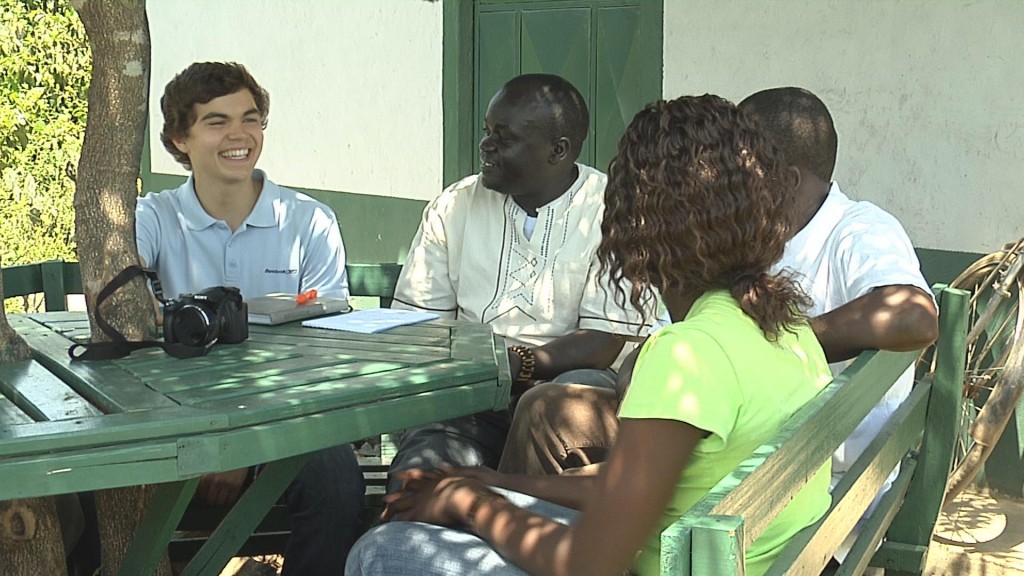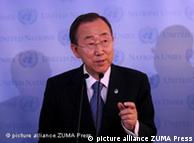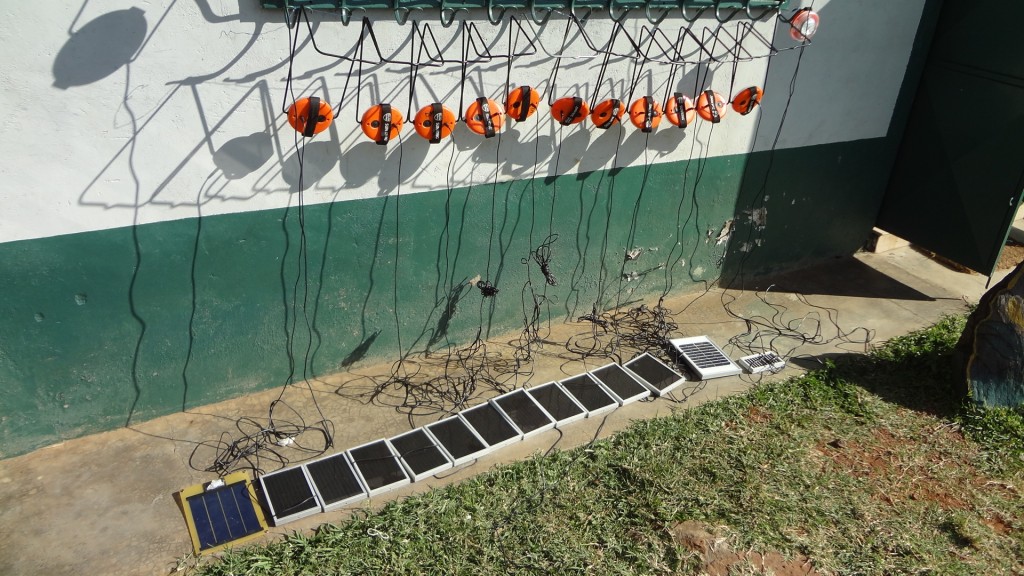Search Results for Tag: electricity
No tough stuff from “Tough Stuff”!
“Take a gap year and save the planet!” This could be the motto of the Kenyan based organisation “Ecofinder”. Founded in 1995 the Kenyan grass roots organisation helps communities around Lake Victoria to lead a more sustainable life. GLOBAL IDEAS has invited Nicolas, one of Ecofinder’s numerous volunteers, to write about his experience:
 What do you need for a succesful small-scale solar lamp business?
What do you need for a succesful small-scale solar lamp business?
There are two important things:
First: Highly motivated and convinced people who know that what they are doing will improve their lives and help to protect the environment. And second: Affordable solar lamps of good quality and longlivety.
Ecofinder started his solar lamp projects with 80 “Tough stuff” lamps. But unfortunately we had problems with faulty lamps after just three months. Our “Solar Lamp Entrepreneurs” could not rent as half as much lamps as before. Their business were in danger.
We changed the lamp trade mark. Our new lamps are from “Sun King”. The lamp’s quality is much better. They more or less rescued the project. It was possible to increase the number of solar lamps. At the moment 140 solar lamps from Ecofinder are used in areas around Kisumu nearby the Lake Victoria and the number is rising.
Because of the problems we had with the old lamps, we started buying lamp kits that have to be assambled. Organizing this is my task at the moment. We want to establish a Solar Lamp Workshop where employees learn to assemble the final lamp.
That would create more positive impacts on the community:
Not only we can offer affordable lamps, we would also offer new jobs for unemployed people. In conclusion it is possible to provide more and more people with solar lamps. Furthermore it would be obvious for everyone that eventually broken lamps could be fixed in the workshop.
I hope that my task, the workshop, will be reality in future.
“Green” Light for Lake Victoria
“Take a gap year and save the planet!” This could be the motto of the Kenyan based organisation “Ecofinder”. Founded in 1995 the Kenyan grass roots organisation helps communities around Lake Victoria to lead a more sustainable life. GLOBAL IDEAS has invited one of Ecofinder’s numerous volunteers to write about his experience:
A lot of people especially in developing countries have no acess to electricity. That’s why most of them use kerosene lamps for at least a little bit light at night. But this is quite dangerous because of the open fire and it’s unhealthy for the people because of the smoke. Therefore Ecofinder started a very interesting project, the “Solar Lamps Rentals”, in March 2012.
The project’s idea and structure is quite simple but very efficient:
After a training about small-scale business and solar lamps, Ecofinder provides a new “Solar Lamps Entrepreneur” with a starter pack of 10 solar lamps. Now he can rent them every night to his local customers and charge them during the daytime. The only condition is that he will pay back 25% of his income to Ecofinder until the lamps are paid off and that the price for the lamps a night is below the local common price for kerosene lamps.
With the earned money Ecofinder is able to spread the solar lamps project and to buy new lamps for new entrepreneurs. One of my first tasks was to put the repayment’s bookkeeping in order and to assign it to an excel-softcopy. After this office work I could visit and meet all our eight “Solar Lamps Entrepreneurs”. I asked them about their running business, problems, wishes and how much solar lamps they would need more to provide the demand of all customers. The response on the last question was clearly. The market for affordable solar lamps is huge. It’s environmental friendly and you can even earn your own money with the rentals. A perfect project combination of ecological and economic aspects.
But you can imagine, it is’nt everyhing perfect from the very beginning. We have also some problems, more information the next time.
Kenyan Volunteers save the planet
“Take a gap year and save the planet!” This could be the motto of the Kenyan based organisation “Ecofinder”. Founded in 1995 the Kenyan grass roots organisation helps communities around Lake Victoria to lead a more sustainable life. GLOBAL IDEAS has invited one of Ecofinder’s numerous volunteers to write about his experience:

Hello, my name is Nicolas Kawerau from Germany. Currently I live in Kisumu, Kenya where I work as a volunteer with the Kenyan organisation Ecofinder for one year. I am 18 years old and have done my A-Levels this year. I know already what I would like to study: “Renewable Energy Technologies”.
To live and behave sustainable on our earth is a big challenge. You can hear the expression “Sustainability” everywhere. Everyone says it is essential and very important for our future – but the problem is you can hardly see sustainable measures anywhere: We pollute the air, we pollute the soil, we pollute the water with our waste, we destroy the world’s surface.
Everyone can start saving the planet now
It’s fine that a lot of people know already about these issues but most people don’t change their behaviour. They think it wouldn’t have an impact. It’s true that no one alone can change the world. But it’s false to believe that a single environmental friendly contribution would be nothing, every little contribution is important.
I am a volunteer for Ecofinder Kenya because I want to start giving our world community a sustainable contribution towards a greener environment. One of my tasks here in Kenya will be to help that electricity only comes from renewable energy sources. The sun provides enough energy, we don’t have to take non-renewable resources like coal, oil, gas or radioactive stuff from the earth for generating power.
Think about your conribution towards a greener environment and try to start as fast as you can! With Ecofinder I will join in and start projects about the spread of renewabel energy sources.
For more information on how to become an Ecofinder volunteer yourself visit the organisation’s homepage: http://www.ecofinderkenya.org
Sustainable Energy Year
 2012 has arrived – the UN Year of Sustainable Energy for All. It’s an initiative launched by the United Nations to bring attention to developing new energy sources. We know by now that sustainable power is an environmentally-friendly solution to solving our energy needs, but UN Secretary General Ban Ki-moon is also using this directive in a special way: developing sustainable energy to fight poverty.
2012 has arrived – the UN Year of Sustainable Energy for All. It’s an initiative launched by the United Nations to bring attention to developing new energy sources. We know by now that sustainable power is an environmentally-friendly solution to solving our energy needs, but UN Secretary General Ban Ki-moon is also using this directive in a special way: developing sustainable energy to fight poverty.
Some 1.4 billion people across the world do not have access to electricity, and almost 2.5 billion use biomass for cooking and heating. So finding sustainable energy sources can provide solutions with serious impact. Energy is essential to daily life and clean power can generate income.
The UN initiative has set out to reach 3 goals by the year 2030: to ensure universal access to modern energy, double the rate of improvement on energy efficiency and most importantly, double the share of renewable power across the globe. All year, you can take part in events and activities to support the initiative and bring awareness to the importance of investing in sustainable energy – for the present and the future.
South Sudan’s Hope

After winning independence over the weekend, The Republic of South Sudan is the world’s newest country. Even though the nation is just starting out, it’s rich in natural resources and has huge potential to grow and prosper – especially when it comes to clean energy.
One of the World Bank’s chief technicians, Daniel Kammen, took a video of South Sudan’s Fula Rapids while he was on site recently. The force and power of the White Nile River’s rapids make them the perfect source for hydropower. Some experts believe the Fula Rapids alone could produce 60 megawatts of electricity – and that in a country that generates less than 200 megawatts total right now.
Because South Sudan is largely undeveloped, officials there have the chance to start from the very beginning with renewable energy generation and green-friendly development practices. But one big question remains: will renewable energy projects benefit the country’s poor, too? Or will its new-found natural wealth end up in the hands of the few?









Feedback